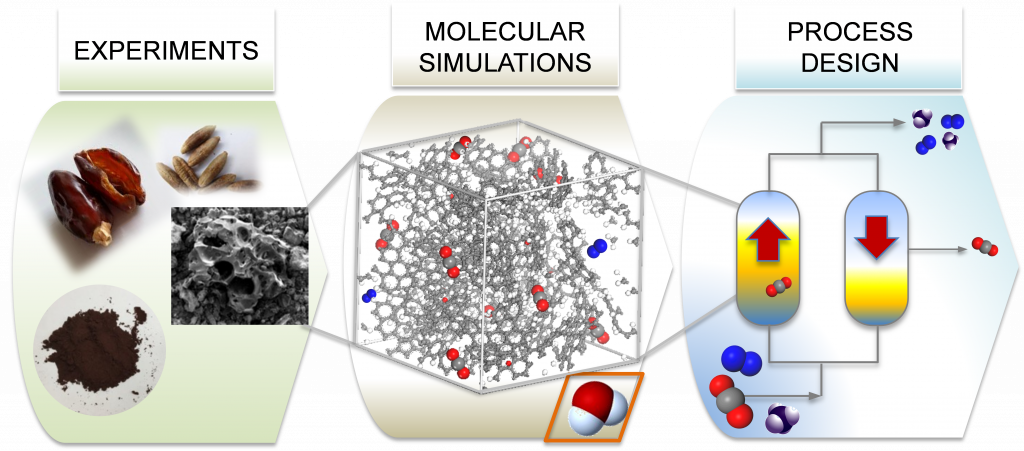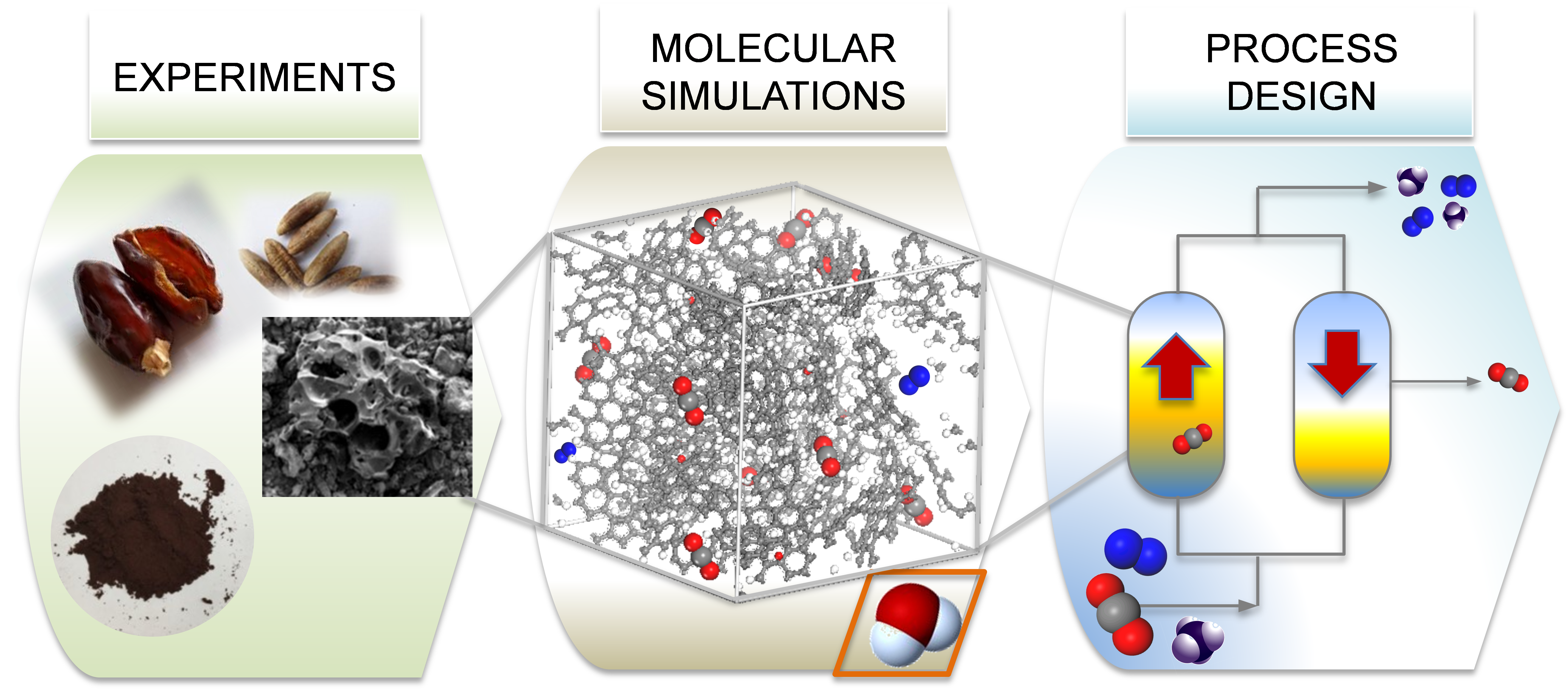Computational Lab – Multiscale modeling
The RICH center has expertise on the development and application of different modeling tools from Quantum Mechanics and Molecular Simulations to process modeling, optimization and integration, including techno-economic analysis. Expertise also includes machine learning techniques (such as artificial neural networks and others). These methods are used in a complementary manner with the experimental techniques, guiding the optimization of the novel materials CO2 capture, CO2 reduction and H2 production and storage as per defined key properties and performance, as well as other clean energy and sustainable processes. RICH has a dedicated Computational Modeling Lab to carry out this work.
Notable equipment and software used in this lab includes:
- 30 high-end computing workstations
- In-house developed software: work bench soft-SAFT, MOCASIN
- Computational modeling licenses: Materials Studio, VASP, Gaussian
- Process modeling software: gPROMS, Aspen Plus
- Open source modeling software: LAMMPS, RASPA, Quantum Espresso

Fig 6. Showcase of the integrated approach used in RICH for process design and optimization by combining experiments with simulations: date seeds-derived activated carbons for CO2 capture
